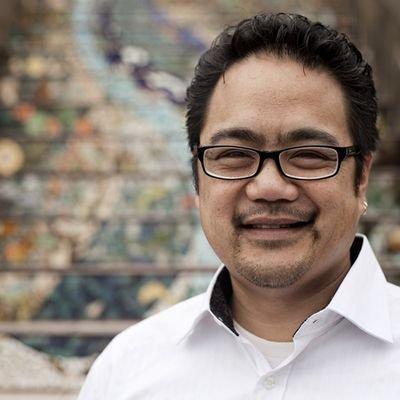
Bruce Reyes-Chow is currently studying for a Doctor of Ministry degree at McCormick Theological Seminary and serve on the Boards of The Public Religion Research Institute and CA Faith for Equality. Follow him on his blog and on twitter @breyeschow.
Posts By This Author
5 Ways to Teach Kids About Justice
How do we help the youngest members of the church understand the gospel's call to love God and to love our neighbors as ourselves?

CristinaMuraca / Shutterstock
READERS OFTEN ASK US: How can I incorporate a hunger for justice into my child’s spiritual formation? How do we help the youngest members of the church understand the gospel’s call to love God and to love our neighbors as ourselves? Sojourners asked five Christian parents engaged in various forms of justice work to share their best tips for helping children put their faith into action. Here’s what they said. - The Editors
1. Look for Teachable Moments
by Kate Ott
MANY PARENTS FEEL unprepared to talk about sex or faith with their children. I was one of those parents until I realized age-appropriate sexuality information could empower my children and keep them safe. I also realized that teaching my kids about sexuality meant more than talking about “sex.” After all, if I didn’t talk to my kids about how Christian values of love, justice, and mutuality guide the care of our bodies and our relationship choices, who would?
So rather than planning for a single “big talk” or waiting until I know all the answers, I practice parenting through teachable moments. For example, in our house we talk about how clothing choices and hygiene reflect our thankfulness for our bodies as part of God’s good creation (including remembering to brush teeth!). As a parent, when I take a picture of my kids, I ask them for permission before posting it on social media; this encourages thinking-before-posting and consent as an active yes. And when we’re watching TV or listening to a song in the car about attraction or a relationship, I ask questions like: How would you feel in that situation? Do you think that person values their body? Does that seem like a mutual decision/relationship? Is that kind of love balancing God, neighbor, and self? In the short conversation, I always say something like, “Being in a relationship takes a lot of work and requires communication, honesty, commitment, and mutuality.” This models how to use one’s values to assess relationship choices.
Digital Prayers of the People

"Tree of Prayer" image via Wylio http://www.wylio.com/credits/Flickr/4404284129
I know that for people of all faiths prayer is an incredibly important part of life, not only for one’s own sense of connecting to God, but also in order to stay connected to the people around them. As social media gets further embedded in our everyday lives, this sense of who is “around” us is changing, offering an opportunity to expand our understanding and experience of community. Prayer has always been a means to cross-over bounds of geography, personal experience and other divisions in order to lift up a common hope that God’s love, hope, peace and joy will be made known and Social Media, when used well, can be a powerful means of further crossing those bounds.